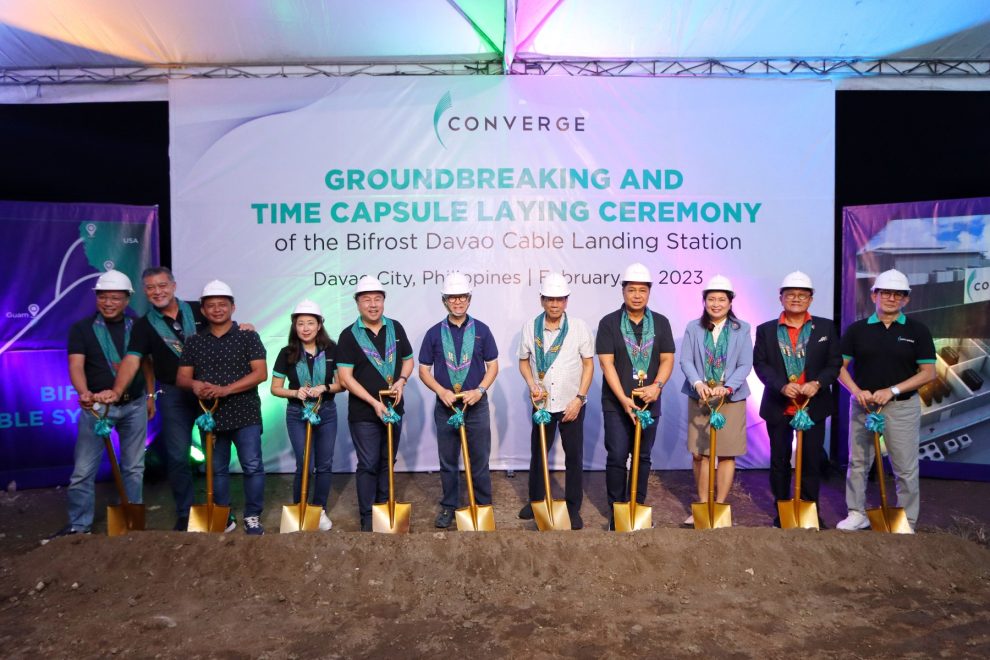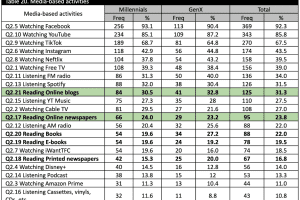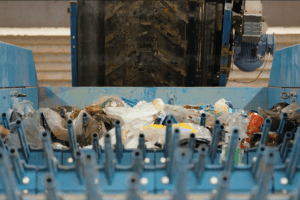Leading Philippine fiber internet provider Converge ICT Solutions Inc. (PSE: CNVRG) has inaugurated the site for its cable landing station (CLS) in Davao for the Philippine branch of the Bifrost Cable System, which will deliver much-needed internet capacity, redundancy, and reliability between the Asia-Pacific region and North America.

“The demand of consumers and digitalization is getting bigger and bigger, that’s why we need to prepare for the future. Ngayon, ready na yung digital highway for OTT, for hyper scalers,” said Converge CEO and Co-Founder Dennis Anthony Uy in his speech, highlighting the importance of the Bifrost infrastructure to the consumers and in making the country a digital hub in Asia.
“Today, we are breaking ground on a significant infrastructure that will bring about greater internet speeds and an overall better digital experience for Filipinos in the future. The Philippine branch of the Bifrost Cable System will be landing here in Davao and as such, we’ll be bringing in the capacity and bandwidth of Bifrost to our domestic networks,” said Converge CEO and co-Founder Dennis Anthony Uy, during the ceremonial groundbreaking and time capsule laying of the cable landing facility site in Talomo district, Davao.
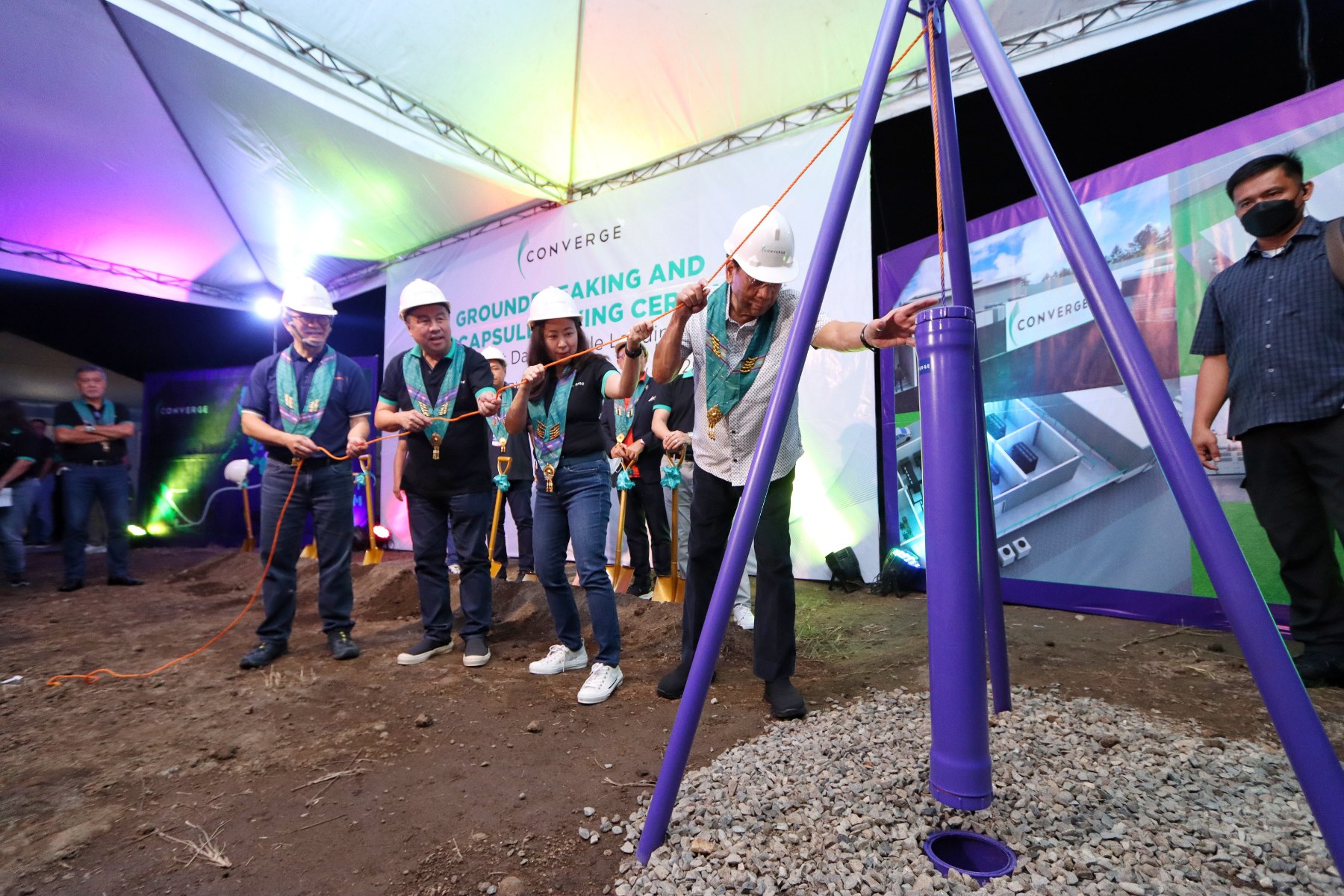
From right: Former President Duterte, Converge President Maria Grace Uy, Converge CEO Dennis Anthony Uy, and Keppel T&T CEO Thomas Pang as they led the time capsule laying during the groundbreaking ceremony of Bifrost Davao Cable Landing Station, the first fully owned and operated cable landing station of Converge in the country.
The 745-sqm, one-storey facility will be the first fully owned and operated cable landing station of Converge in the Philippines. The cable landing station sits on a 8,000-sqm lot.
The Bifrost cable system is a new trans-Pacific cable system connecting Singapore, Indonesia, the Philippines, to the West Coast of North America. The consortium behind Bifrost includes Keppel Midgard Holdings Pte Ltd a subsidiary of Keppel Telecommunications & Transportation Limited (Keppel T&T), Meta, and PT. Telekomunikasi Indonesia International (Telin), a subsidiary of PT Telkom Indonesia.
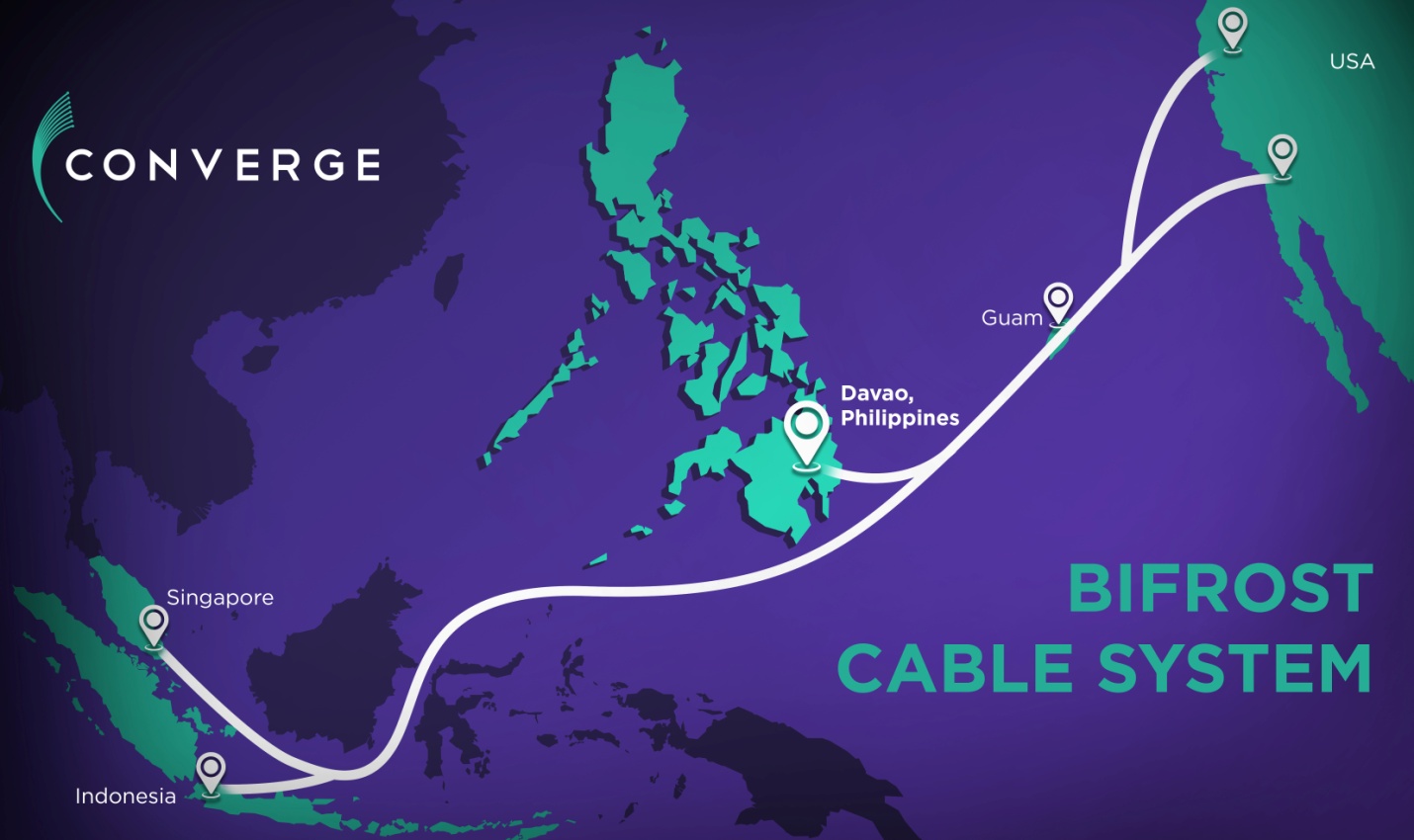
The Bifrost cable system is a new trans-Pacific cable system connecting Singapore, Indonesia, the Philippines, to the West Coast of North America. The infrastructure is envisioned to support the booming digital connectivity needs of the Asia-Pacific region and provide a critical, direct link with North America.
The infrastructure is envisioned to support the booming digital connectivity needs of the Asia-Pacific region and provide a critical, direct link with North America.
To recall, Converge and Singapore-based Keppel Midgard Holdings Pte. Ltd. (a subsidiary of Keppel T&T) signed an agreement granting Converge one fiber pair in the trunk of the Bifrost Cable System. The system is expected to be completed in 2024.
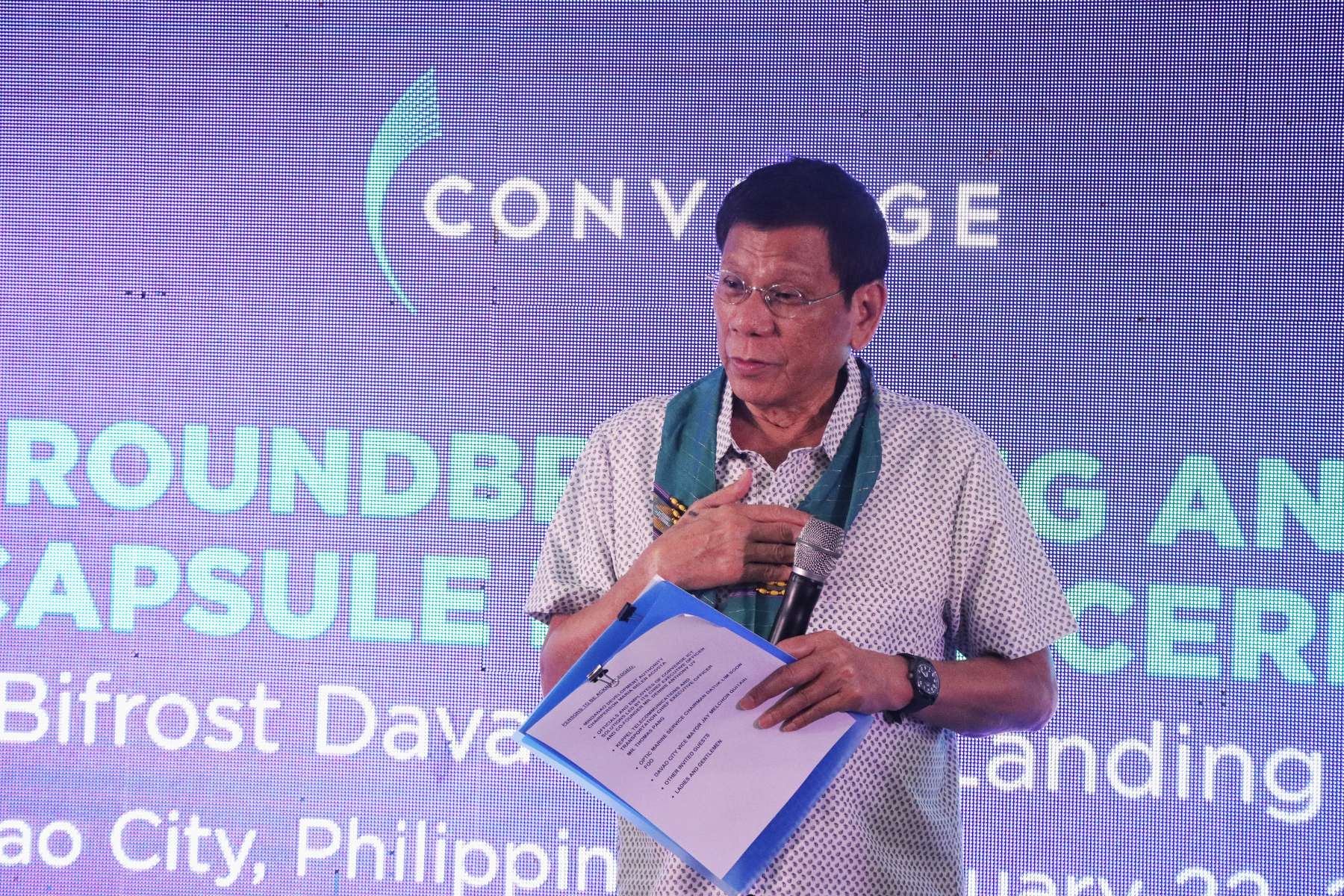
“Connectivity and kailangan natin. We’re a big country with so many people and businesses so connectivity is very important. Im glad Converge has come in, we welcome you and we’d like to assure you that the business you’re doing will help the economy of the Philippines, may you progress in the years ahead,” underscored Former President Duterte in his speech as he graced the ceremonial groundbreaking of the Bifrost Davao Cable Landing Station.
“Our investment in this land-based infrastructure is in line with our goal to make the Philippines a digital hub in Asia. Our country is in a prime location in the center of the region for intra and inter-Asian connectivity, so that’s why we are investing in different submarine cables. This will not only boost the company’s international bandwidth capacity, but for the Philippines, it will mean redundancy and diversity in network infrastructure,” said Converge Chief Operations Officer, Jesus C. Romero.
Converge’s goal is to make the vital interconnection between the submarine network with the domestic terrestrial network.
Submarine cables and their connections to terrestrial networks enable real-time access to business and consumer applications, social media, streaming video, websites, and many other bandwidth-intensive services.
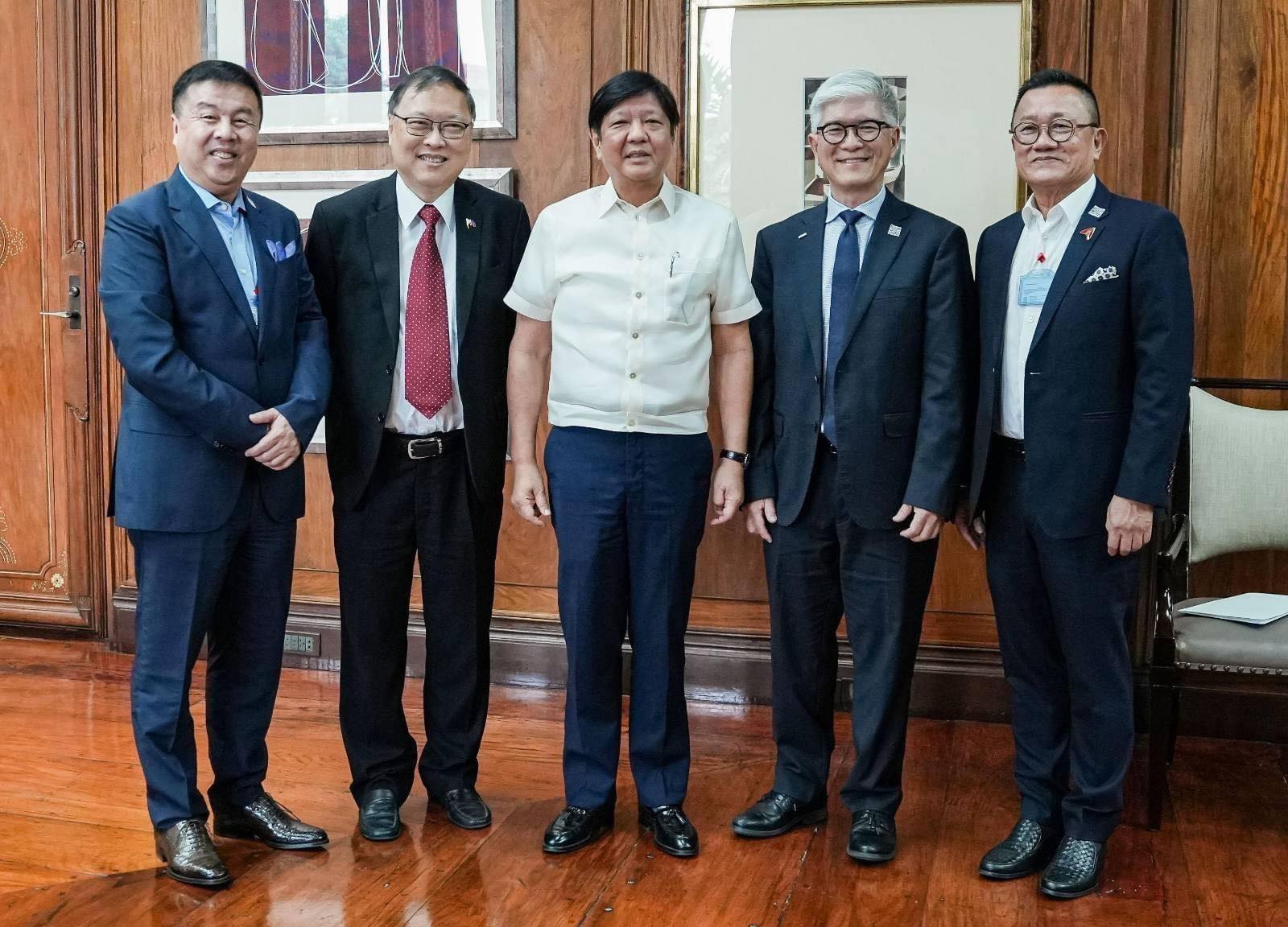
“We, Converge and Keppel, are proceeding as planned on breaking ground on the facility in Davao. We are honored to have the project green-lit and facilitated by the country’s chief executive; with his blessing, the investment in this cable landing station will reap benefits in terms of improved digital connectivity in the country,” said Converge CEO Dennis Anthony Uy.
From Left: Converge CEO and Co-Founder Dennis Anthony Uy, Department of Information and Communications Technology Secretary Ivan John Uy, His Excellency President Ferdinand Marcos Jr., Keppel Telecommunications and Transportation CEO Thomas Pang, and Optic Marine Services Chairman Datuk Lim Soon Foo.
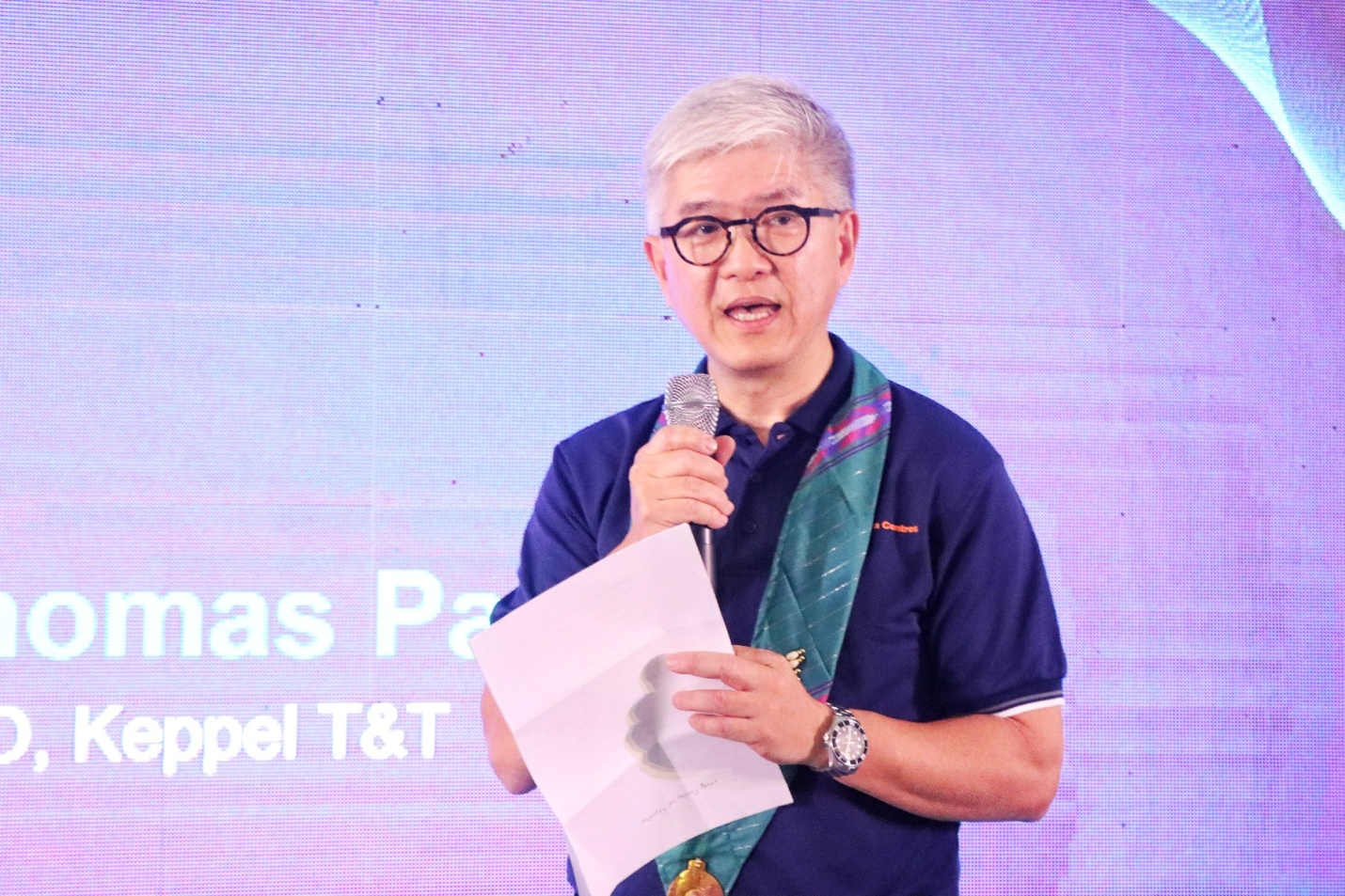
Before the groundbreaking ceremony in Davao, Converge CEO and Co-Founder Dennis Anthony Uy and Keppel T&T CEO Thomas Pang made a courtesy call to Malacanang, showcasing strengthened business ties between Keppel and Converge.








